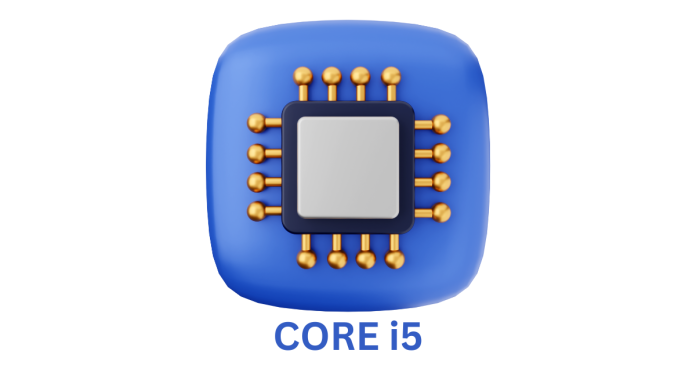Core i5 is a line of mid-range processors developed by Intel Corporation. It is part of Intel’s Core series of processors, which also include Core i3 (entry-level), Core i7 (high-performance), and Core i9 (extreme performance). The Core i5 processors strike a balance between affordability and performance, making them ideal for a variety of applications, including everyday computing, gaming, and multitasking.
Key Features of Core i5 Processors
- Performance Tier:
- Positioned as a mid-range processor that offers better performance than Core i3 but is more budget-friendly than Core i7 or i9.
- Cores and Threads:
- Core i5 processors generally come with 4 to 6 cores in older generations and up to 12 cores in the newer models, with hyper-threading support in some variants (allowing multiple threads per core for better multitasking).
- Clock Speed:
- They have a base clock speed (e.g., 2.4 GHz) and can boost to higher speeds (e.g., 4.0 GHz or more) under heavy workloads using Intel’s Turbo Boost Technology.
- Integrated Graphics:
- Many Core i5 processors come with Intel Integrated Graphics (e.g., Intel UHD or Iris Xe), eliminating the need for a dedicated graphics card for basic tasks like video playback and light gaming.
- Power Efficiency:
- Offers good power efficiency, with options available for both desktop (higher performance) and laptop (better battery life) systems.
- Compatibility:
- Compatible with a wide range of motherboards, making it versatile for desktop PCs and laptops.
Core i5 Naming Explained
Intel uses a specific naming convention to identify different generations and models of Core i5 processors. For example:
- Core i5-12400:
- 12: Refers to the processor generation (12th Gen, Alder Lake).
- 400: Refers to the model within the generation.
Use Cases
Core i5 processors are suitable for:
- Everyday Computing: Browsing, streaming, and office work.
- Gaming: Can handle most modern games at medium to high settings (paired with a good GPU).
- Content Creation: Basic photo and video editing.
- Multitasking: Running multiple programs simultaneously.
Who Should Choose a Core i5?
- Ideal for users looking for balanced performance without spending too much on a high-end processor like Core i7 or i9.
- Great for students, office workers, gamers, and general users.


